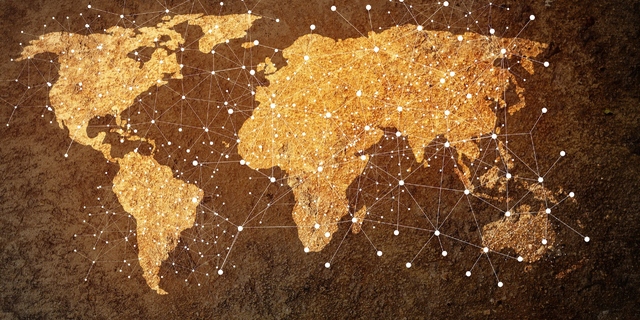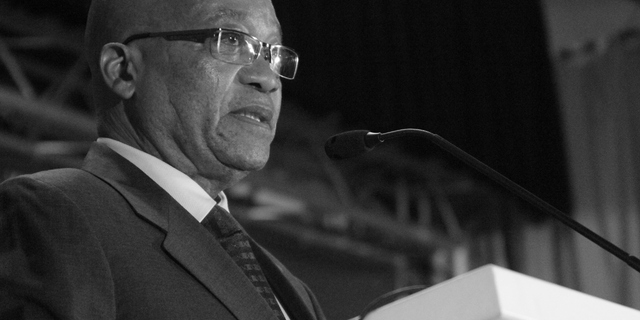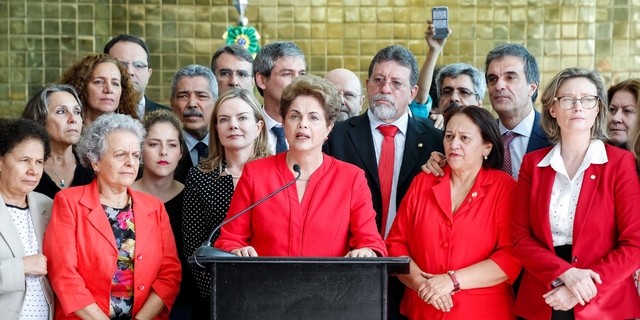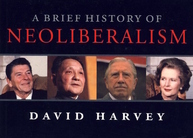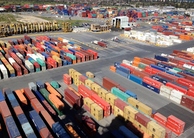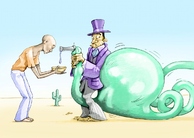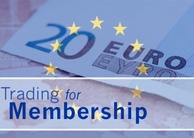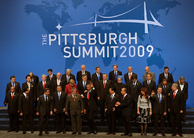|
Political Economy (tagged articles)
The keyword Political Economy is tagged in the following 22 articles.
2020, Vol. 12 No. 09
Recent work with the Economic Complexity Index (ECI) has shown that a country’s productive structure constrains its level of economic growth and income inequality. Building on previous research that identified an increasing gap between Latin... Read Article »
2019, Vol. 11 No. 01
Globalization is generally studied as a process that extensively impacts nations and peoples across every aspect of society. Empirical and theoretical research largely focuses on this effect, seeking to discover the impact of an increasingly globalized... Read Article »
2017, Vol. 11 No. 1
The growth of the South Korean economy has often been attributed to the rise of Chaebols, or family owned businesses with wide-ranging conglomeratelike economic interests. The embeddedness of the Chaebol in Korea's Political Economy has allowed... Read Article »
2017, Vol. 11 No. 1
By using an incentives/disincentives model to map the divergent behaviors of multinational corporations (MNCs) confronted by a sanctioned economy, I explain why some economic sanctions work better than others at achieving their desired political... Read Article »
2017, Vol. 7 No. 2
In 2009, Brazil was in the path to become a superpower. Immune to the economic crises of 2008, the country's economy benefitted from the commodity boom, achieving a growth rate of 7.5 per cent in 2010, when Rousseff was elected. A few years later... Read Article »
2016, Vol. 10 No. 1
Labor markets have traditionally been regarded as the product of a demand and supply of labor.2 In Varieties of Capitalism: The Institutional Foundations of Comparative Advantage, political economists Peter A. Hall and David Soskice put forth two... Read Article »
2016, Vol. 8 No. 02
At 7am in the morning after the Referendum on Scottish Independence, a triumphant David Cameron stood on the steps of number 10 Downing Street and announced to the world that the Scottish people had, with 55% of the electorate voting No, comprehensively... Read Article »
2016, Vol. 8 No. 02
Michael Thompson, reviewing A Brief History of Neoliberalism by David Harvey, calls it ‘the world according to David Harvey’ (2005). This is an accurate remark: although erring slightly on the side of conspiracy, the book is a breathtaking... Read Article »
2015, Vol. 6 No. 1
This paper investigates the relationship between various types of economic freedom and intra-EMU export growth. Export growth is the primary empirical puzzle that this paper seeks to explicate, and is important because the EMU's inception preceded... Read Article »
2015, Vol. 7 No. 11
An article in The Guardian last month reported on the extreme and increasing levels of wealth inequality that exist in Britain today.[1] The story cited an Oxfam report that highlighted the opulent existence of Britain’s richest family, the... Read Article »
2015, Vol. 7 No. 06
The concept of a “fourth estate” was first articulated by John Declare, editor of The Times in an article published in 1853. He believed the press had a crucial role to play in British society’s transformation into a representative... Read Article »
2015, Vol. 7 No. 03
Concern regarding the inequity and commodification apparently necessary for the capitalist system to thrive is not new. Marx, in his work Capital: Critique of Political Economy (1867), raised the idea of the fallibility of fetishism, including an... Read Article »
2015, Vol. 7 No. 02
Our contemporary global public sphere is made up of a tiny proportion of the world’s population. Affluent, exclusive, and concerned only with perpetuating its own economic advancement, this contemporary global public sphere is an anachronism... Read Article »
2013, Vol. 3 No. 1
Given the importance of the global defense trade to geopolitics, the global economy, and international relations at large, this paper examines the Political Economy of the U.S. defense industry. The goal of this study is to determine the extent... Read Article »
2013, Vol. 5 No. 03
This essay examines the first black winner in 2012 on Idols SA, Khaya Mthethwa (Appendix 1), the TV format of the Idol brand, and the social construction of racialized vision in the context of South Africa as a post-colonial nation from a visual... Read Article »
2012, Vol. 4 No. 11
It has been argued that the global trading system is supposed to promote global efficiency and growth, but a rising chorus of voices is asserting that the global economy operates in a way that is fundamentally unfair and seems to be ‘rigged... Read Article »
2012, Vol. 5 No. 2
For roughly a decade, Côte d'Ivoire has been bitterly divided by a civil war between its dry Muslim north and its fertile Christian south. Many commentators have attempted to ascribe cultural or social origins to this war, casting it as an... Read Article »
2012, Vol. 4 No. 01
Does candidacy to the European Union (EU) increase a nation’s Trade Openness? A good way to begin examining this question is by asking, what is Trade Openness? Simply put, it is a nation’s imports plus its exports divided by its GDP ([... Read Article »
2009, Vol. 3 No. 1
Few would disagree that the most significant development at the G-20 meeting in Pittsburgh during September 24-25, 2009 was the formal acknowledgement of the changing of the guards. In the draft communiqué, President Barack Obama declared... Read Article »
2009, Vol. 3 No. 1
The world is rapidly changing and the new international order includes developing nations as powerful actors. Among them, Brazil stands out as one of the most influential and promising players. This article examines Brazil’s case as an emerging... Read Article »
2008, Vol. 1 No. 2
In the past weeks, print media and blogs are buzzing with renewed speculation about a possible replacement of the Dollar as the dominant global currency by the Euro. This intensification of the debate was sparked by the rise of the Euro above $1... Read Article »
2008, Vol. 1 No. 2
Following the collapse of the Soviet Union, the newly-formed Russian Federation faced a considerable economic downturn. During the post-Soviet economic collapse spanning from 1991 to 1998, Russian gross domestic product (GDP) fell from $509,381,... Read Article »
Expedited Article Review
Submit an article and get a decision fast.
If you need a fast decision, INQUIRIES Journal offers expedited processing of your submission for a small fee. Depending on the expedited review option you choose, you can receive a decision in as few as 5-days.
In addition to a shorter review period, the fee supports the journal's continued operation and open-access publishing model. Standard submissions are always free. Submit Now » - Submit an Article to Inquiries Journal -
|


